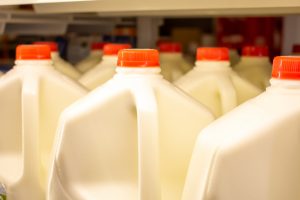Colombia’s decision to restrict beef imports from certain U.S. states due to concerns about avian influenza in dairy cows marks a significant development in the global response to the virus.
This move reflects the broader economic impact of the avian flu outbreak, which has already affected poultry trade worldwide.
The U.S. Department of Agriculture announced the restrictions in a notice on its Food Safety and Inspection Service website on April 22. These restrictions apply to beef and beef products from states where dairy cows have tested positive for avian influenza. The affected states listed include Idaho, Kansas, Michigan, New Mexico, North Carolina, Ohio, South Dakota, and Texas.
In response to the outbreak, the U.S. government has announced measures requiring testing for bird flu in dairy cattle moving between states starting Monday. This proactive approach aims to contain the spread of the virus, which has already affected multiple states and dairy herds.
According to government officials, no U.S. beef cattle have tested positive for bird flu thus far. Despite this, Colombia’s decision has significant implications for exporters and their customers doing business there.
The U.S. Meat Export Federation has expressed concerns about the scientific basis of the import restrictions and is engaging with USDA officials to address the issue. Meanwhile, USDA officials are responding to requests from trading partners for additional information on the epidemiology of the outbreak to mitigate any trade impacts.

Texas Agriculture Commissioner Sid Miller addressed growing concerns following the Food and Drug Administration’s discovery of HPAI particles in commercial grocery milk samples.
“There is no reason for consumers to panic,” noted Commissioner Miller. “Milk and dairy products remain safe for consumption. Milk from affected cows is discarded before it can enter the supply chain. In the rare event that contaminated milk does enter the supply chain, pasteurization effectively kills viruses even if traces of the virus remain detectable.”
For more than a century, pasteurization has secured the safety of dairy products worldwide. The pasteurization process is a crucial step in dairy production. The milk is heated to around 161°F (71.7°C) for 15 to 30 seconds to effectively kill harmful bacteria and viruses. Even in cases where raw milk may contain a virus, pasteurization consistently kills pathogens to levels that pose no risk to consumer health.
“Nearly all commercial milk in the U.S. originates from the Grade “A” milk program,” Commissioner Miller stated. “That is another way to maintain industry-wide safety and quality standards.”


